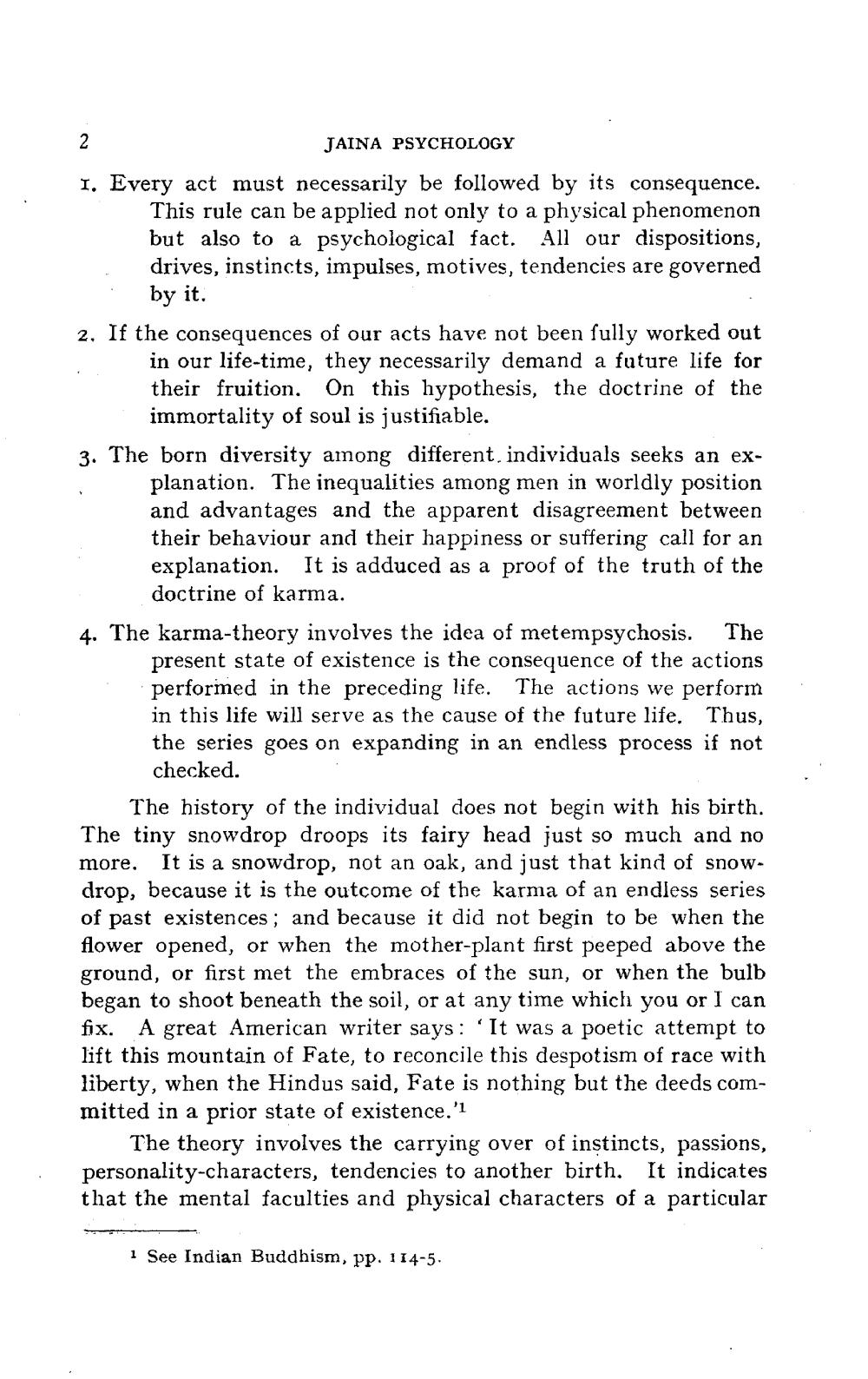________________
JAINA PSYCHOLOGY
1. Every act must necessarily be followed by its consequence.
This rule can be applied not only to a physical phenomenon but also to a psychological fact. All our dispositions, drives, instincts, impulses, motives, tendencies are governed
by it. 2. If the consequences of our acts have not been fully worked out
in our life-time, they necessarily demand a future life for their fruition. On this hypothesis, the doctrine of the
immortality of soul is justifiable. 3. The born diversity among different individuals seeks an ex
planation. The inequalities among men in worldly position and advantages and the apparent disagreement between their behaviour and their happiness or suffering call for an explanation. It is adduced as a proof of the truth of the
doctrine of karma. 4. The karma-theory involves the idea of metempsychosis. The
present state of existence is the consequence of the actions performed in the preceding life. The actions we perform in this life will serve as the cause of the future life. Thus, the series goes on expanding in an endless process if not
checked.
The history of the individual does not begin with his birth. The tiny snowdrop droops its fairy head just so much and no more. It is a snowdrop, not an oak, and just that kind of snowdrop, because it is the outcome of the karma of an endless series of past existences; and because it did not begin to be when the flower opened, or when the mother-plant first peeped above the ground, or first met the embraces of the sun, or when the bulb began to shoot beneath the soil, or at any time which you or I can fix. A great American writer says: 'It was a poetic attempt to lift this mountain of Fate, to reconcile this despotism of race with liberty, when the Hindus said. Fate is nothing but the deeds committed in a prior state of existence.'1
The theory involves the carrying over of instincts, passions, personality-characters, tendencies to another birth. It indicates that the mental faculties and physical characters of a particular
1 See Indian Buddhism, pp. 114-5.




